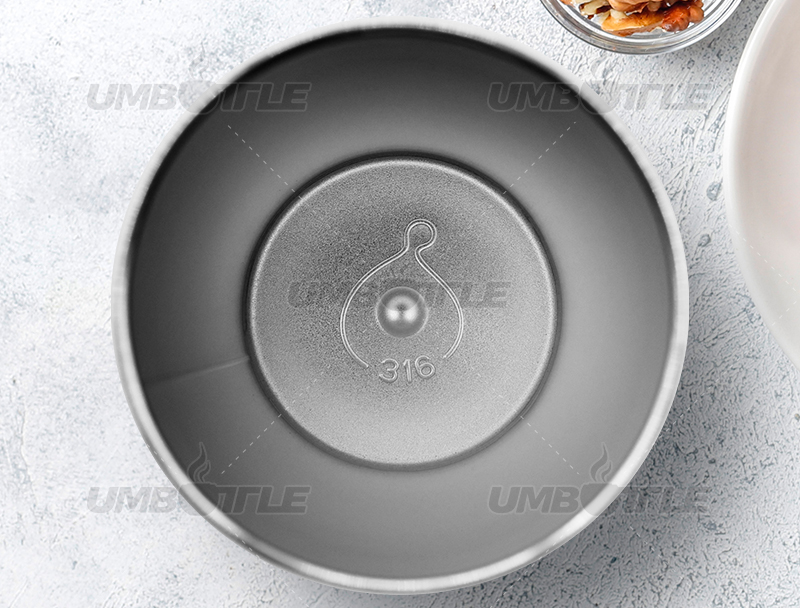Are these insulated cups made of materials just a gimmick or are they really worth it?
Hello everyone, "Dong Dong Talk Cup" is here. The editor's mood is still average today. As for men, as we all know, there are always a few days in a month when their mood is average. http://www.umbottle.com/ProductsDetail-VB-10478.htmlToday, the editor will discuss with you whether 304 stainless steel, as a material for producing insulated cups, has fully met people's health needs and daily use. Is 316 stainless steel and titanium a marketing gimmick or is it really worth it as the merchants claim?
In the current consumer market, as a common item in daily life, the choice of material for thermos cups is particularly important. 304 stainless steel, due to its excellent corrosion resistance and safety, has been widely used in the manufacture of insulated cups. http://www.umbottle.com/ProductsDetail-VB-10478.htmlEveryone, go check your insulated cup and test it using the method taught by the editor earlier to determine if it is made of 304 stainless steel. If it is made of 201 stainless steel, discard it as soon as possible.
However, with the development of technology and the diversification of the market, 316 stainless steel and titanium insulated cups have gradually entered people's sight. 316 stainless steel will be fully adopted by many manufacturers around 2020, and titanium will be used by most manufacturers from the second half of 2023. http://www.umbottle.com/ProductsDetail-VB-10478.htmlLet's explore together whether the fact that 304 stainless steel fully meets daily needs when manufacturing insulated cups, or whether the promotion of 316 stainless steel and titanium insulated cups in the market is just a marketing gimmick.
304 stainless steel is the most commonly used type of stainless steel, containing 18% chromium and 8% nickel, which gives it good corrosion resistance and oxidation resistance. In daily use, 304 stainless steel will not corrode due to the acidity or alkalinity of beverages, but it will still corrode if it is strong and stored in a water cup for a long time, such as carbonated beverages and some fruit and food products with high acidity or alkalinity. http://www.umbottle.com/ProductsDetail-VB-10478.htmlIn terms of storage time in the cup, if not thoroughly cleaned after use and repeatedly operated in this way, 304 stainless steel will oxidize, but occasionally once or twice does not have a significant impact on the material. In addition, the relatively low cost of 304 stainless steel makes the insulated cups manufactured more cost-effective.
The main difference between 316 stainless steel and 304 stainless steel is the addition of 2% to 3% molybdenum, which gives 316 an advantage in resisting chloride corrosion. http://www.umbottle.com/ProductsDetail-VB-10478.htmlAlthough this feature is very important in some extreme environments, such as marine environments, this advantage is not significant in everyday insulated cups. Relatively speaking, the cost of 316 stainless steel is higher, leading to an increase in the final product price. The hardness of 316 stainless steel is not as high as that of 304 stainless steel, so the water cup is relatively less likely to deform when dropped or bumped, and can maintain its appearance intact.
Titanium insulated cups are favored by some consumers for their ultra light weight and excellent corrosion resistance. http://www.umbottle.com/ProductsDetail-VB-10478.htmlTitanium is a very stable element and completely harmless to the human body, which makes titanium insulated cups have a place in the high-end market. However, the high price of titanium material makes this thermos cup a luxury item.
The promotion of 316 stainless steel and titanium insulated cups in the market often emphasizes their "superior" material characteristics, such as stronger corrosion resistance and lighter weight. However, these features have little practical significance in daily use. http://www.umbottle.com/ProductsDetail-VB-10478.htmlFor most consumers, 304 stainless steel can fully meet their daily usage needs, both in terms of performance and cost-effectiveness.
The promotion of 316 stainless steel and titanium insulated cups in the market often emphasizes their "superior" material characteristics, such as stronger corrosion resistance and lighter weight. However, these features have little practical significance in daily use. http://www.umbottle.com/ProductsDetail-VB-10478.htmlFor most consumers, 304 stainless steel can fully meet their daily usage needs, both in terms of performance and cost-effectiveness.

Dongguan Zhanyi Commodity Technology Co., Ltd. specializes in the production of metal cups, plastic cups, coffee cups, suction mug, lunch boxes, food jar, travel mugs, portable water bottles, sports bottles, home life desktop trash cans, thermos bottles, etc.These products are all our annual exports, and are recognized and loved by the US, Europe, Australia, Japan, South Korea, Taiwan, Hong Kong and other consumers. Support for small quantity order, fast customization.